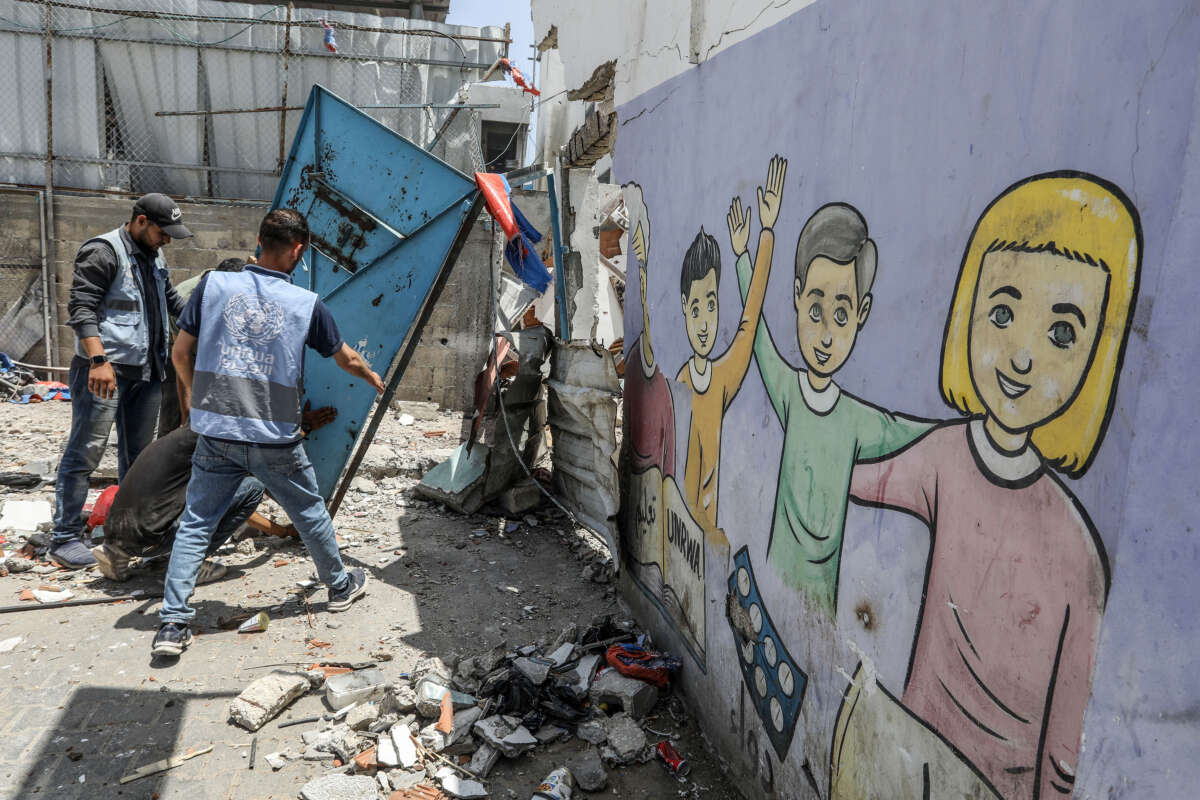The primary aid group supporting humanitarian efforts for Palestinians in Gaza and beyond is facing funding shortfalls, with two major donor countries still withholding funding for the agency due to a smear campaign by Israeli officials that has yet to produce substantial evidence.
In a press conference on Tuesday, UN Relief and Works Agency for Palestine Refugees (UNRWA) Chief Philippe Lazzarini said that the agency only has funding through August, after many countries paused funding earlier this year and after years of negative cash flow before that.
“We have the cash until the end of August, and basically, we still have a shortfall of about $100 to 140 million to reach the end of the year,” he said.
The agency has issued emergency appeals for funding but has only achieved about 15 percent of those goals for its work in Palestine and Syria, he added.
“We have suffered by the absence of attention on the Palestinian-Israeli conflict over the last 10 years. Our resources have eroded and we had more and more of a mismatch with what we are expected to deliver,” Lazzarini said, noting UNRWA’s unique situation of providing “government-like” services to Palestinians while being dependent on funding from UN member states.
In January, Israel accused a handful of UNRWA staff of collaborating with Hamas militants as part of its years-long campaign against the agency. But Israel has refused to provide evidence for these claims, and subsequent investigations by an independent UN panel, foreign experts in multiple countries (including the EU’s humanitarian chief), and journalists across many outlets have found that there is no evidence supporting the accusations.
As a result, most donor countries have since resumed funding to the agency, while some new donors have emerged. But, despite the growing famine risk and humanitarian catastrophe in Gaza due to Israel’s near-total aid blockade, Lazzarini says two countries are still withholding funding to the UNRWA: the U.S. and Britain.
These two countries are crucial to UNRWA funding; the U.S. in particular has historically been the UNRWA’s largest donor by far, and last year contributed $422 million out of the UNRWA’s annual budget needs of $850 million. When the U.S. suspended funding earlier this year, the agency was left with a $450 million budget shortfall, and Lazzarini warned that it was hanging by a thread both financially and politically.
But funding from the U.S. is unlikely to begin again soon. In March, Congress passed a law that mandates that the funding suspension continue until at least the end of 2025. President Joe Biden signed the bill into law, which also funneled billions of dollars in military assistance to Israel, shortly after it was passed.
On Monday, Lazzarini issued a plea for UN member countries to push back on Israel’s campaign to dismantle the agency. The UNRWA has noted that Gaza is the most dangerous place in the world for humanitarian workers, with Israeli forces killing 250 aid workers there since October 7, including 193 UNRWA staff.
He warned that, if Israel’s attacks on the UNRWA and UNRWA schools in particular are allowed to continue, the health and future of an “entire generation” of Palestinians will be at risk.
“Israel has long been critical of the Agency’s mandate. But it now seeks to end UNRWA’s operations, dismissing the Agency’s status as a United Nations entity supported by an overwhelming majority of Member States,” Lazzarini said. “If we do not push back, other UN entities and international organizations will be next, further undermining our multilateral system.”
Press freedom is under attack
As Trump cracks down on political speech, independent media is increasingly necessary.
Truthout produces reporting you won’t see in the mainstream: journalism from the frontlines of global conflict, interviews with grassroots movement leaders, high-quality legal analysis and more.
Our work is possible thanks to reader support. Help Truthout catalyze change and social justice — make a tax-deductible monthly or one-time donation today.
